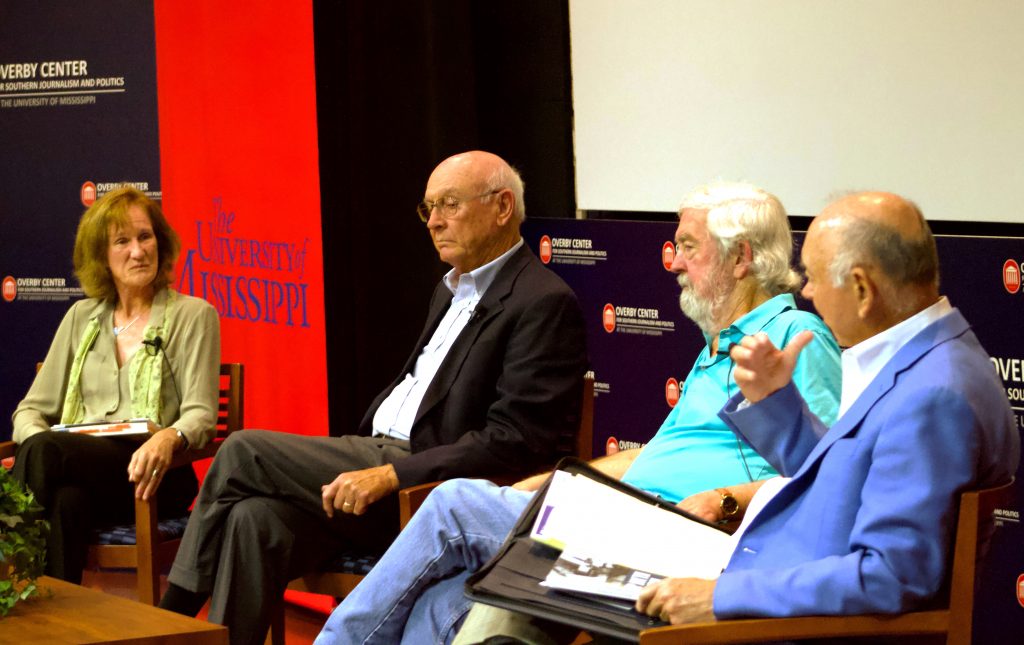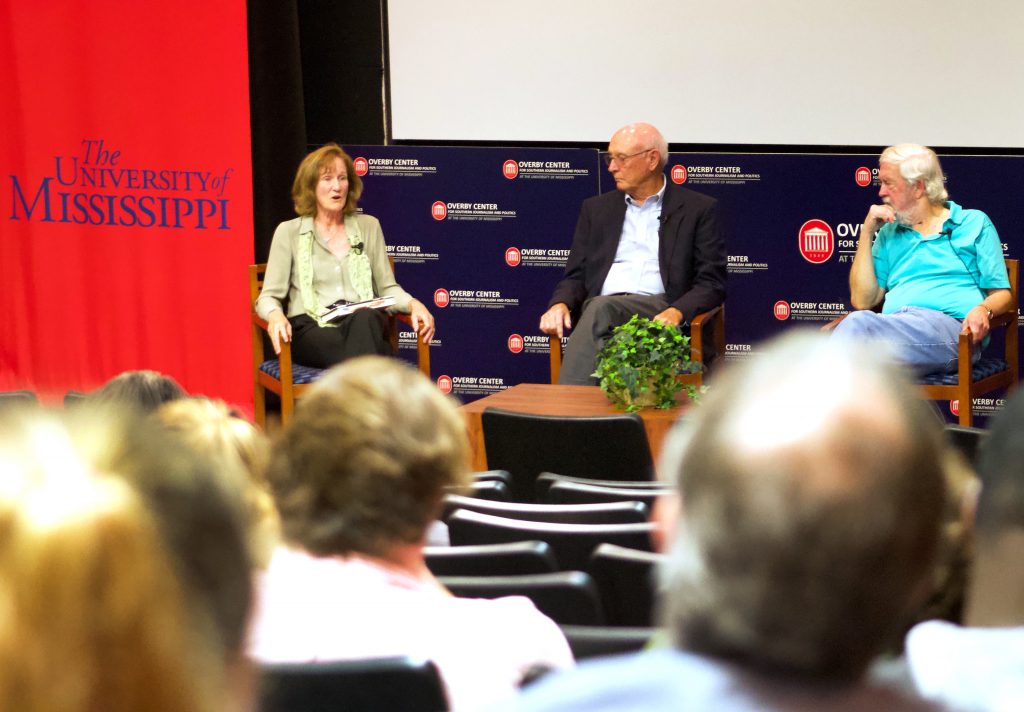The daughter of civil rights reporter John Herbers visited the Overby Center for Journalism and Southern Politics to discuss her late father’s memoir, “Deep South Dispatch: Memoir of a Civil Rights Journalist,” on Tuesday night.
Anne Farris Rosen, a professor of journalism at the University of Maryland, helped her father write the book, which includes a foreword by journalist Gene Roberts.

Rosen began the discussion with a story explaining how the book came about. Her father had an unfinished version that he had written about 20 years ago. Rosen found it and encouraged her father to finish his memoir.
“I’m going (to) go and collect 600 of your articles that were written from 1949 to 1965 and try to help you craft this and pull it together,” Rosen said. “We completed it, luckily, about a year before he died — last year.”
She helped Herbers write the book from start to finish before he died in March 2017.
According to Rosen, the main theme of the memoir is Herbers’ deviation from the social norms for a Southern white male during the civil rights era.
“He was a white Southerner born in Tennessee and lived in the part of the South where he was taught by his school teachers, his parents, the church that society was best (when it was) segregated among the races and that white people were superior — that African Americans were there to serve white people,” Rosen said. “That’s what he was taught.”
She said Herbers rejected those teachings but, at the same time, held on to his heritage.
Herbers spent most of his journalism career covering various events in modern American history.
“He began standing up to the status quo and rejecting this by pursuing journalism stories that weren’t popular at the time,” Rosen said.
Rosen said her father covered race riots, the 16th Street Baptist Church bombing, the murder of Emmett Till, Vietnam protests, presidential elections and many more events during the civil rights era. She even accompanied her father to some of those events.

Herbers thought that it was important to leave himself out of the story. Rosen shared a story about her father rewriting articles because the readers could interpret how he felt about the situation.
“I need to go back and start again and just be as objective as I can — present the facts and let the reader decide for him or herself,” Herbers said to Rosen.
“He knew his credibility was his strongest tool,” Rosen said.
The session ended with a discussion of current events.
“There are things in here that you see replicated today,” Rosen said. “We’ve come a long way, but there are still many lessons to learn.”



























